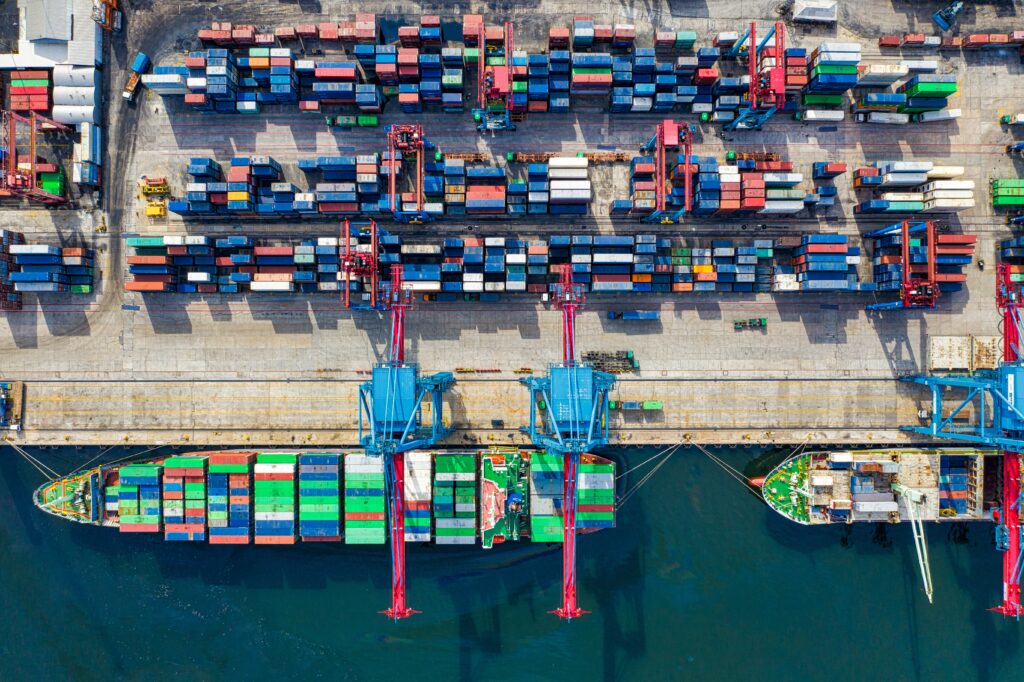Recent years have seen numerous regulations coming into force pertaining to business and human rights and environmental protection. As the main human rights duty-bearers, governments of different countries have been adopting regulations for responsible sourcing. We see these regulations at regional, international as well as at the national level. Alongside the UK Modern Slavery Act, the French Due Digilence Law and the recent EU proposal for Directive on Corporate Due Diligence, Germany also adopted its Act on Corporate Due Diligence Obligations in Supply Chains (Lieferettensorgfaltspflichtengesetz-LkSG) in July 2021. According to the German Federal Ministry of Labour and Social Affairs, it is through the German Supply Chain Act (GSCA) that for “the first time the responsibility of German enterprises to respect human rights in global supply chains has been put on a legal footing”. GSCA came into force on 01 January 2023. Its main goal is to ensure the effective management of human rights and environmental risks, and relative adverse impacts across the supply chain. The Act imposes both similar and new due diligence obligations as compared to the already existing legislations in the field.
1. German Supply Chain Act Scope of Application
The GSCA covers companies based in Germany or foreign companies with registered subsidiaries in Germany. These companies must have at least 3000 employees for the last two exercises across Germany. The threshold of 3000 employees will be reduced to cover companies with 1000 employees from 2024. The Supply Chain Act normally applies only to private sector entities, but also extends to cover public entities (meaning corporations, foundations and institutions under public law) when they carry out commercial activities in the marketplace.
As far as the extent of activities is concerned, the Act regulates all of the company’s products or services from procurement until the final delivery of the product or service up until it reaches the end customer. According to the company’s area of influence, companies have to fulfil due diligence obligations in relation to:
- their own business area,
- the actions of contractual partners, and
- the actions of other (indirect) suppliers.
But the Act also indirectly and unofficially applies to enterprises that do not reach the threshold of 3000 employees (or 1000 employees from 2024) when playing the role of direct or indirect supplier. Indeed, as part of due diligence requirements, the Act requires enterprises that fall under its scope to integrate their due diligence policies into their contractual relationships. But of course, the small and medium enterprises hold no legal compliance responsibility for the Act’s requirements. Unlike companies in its scope, SMEs cannot be penalised as a consequence of the Supply Chain Act.
2. Due Diligence Obligations Arising From the Supply Chain Act
The Corporate due diligence obligations arising from the GSCA take inspiration from the OECD guidelines on responsible sourcing. They are also similar to the aforementioned regulations. The Act requires companies to establish an appropriate and effective risk management system that is integrated into all relevant business processes. A risk management system is considered ‘effective’ when human rights and environment-related risks are identified, mitigated, minimized and eliminated.
The due diligence obligations demand the following in practice:
- the implementation of a risk management system
- the designation of a responsible person or persons within the enterprise
- the performance of regular risk analyses
- the issuing of a policy statement
- laying down preventive measures in an enterprise’s own area of business, vis-à-vis direct suppliers and – if there are indications that suggest a possible violation of human rights – vis-à-vis indirect suppliers
- taking remedial action
- establishing grievance mechanisms
- documentation and reporting
3. What’s New With the German Supply Chain Act Compared to Other Similar Regulations
One key distinction between the German Supply Chain Act and the EU proposal for Corporate Sustainability on Due Diligence Directive (CS3D) is in their modalities of application. Indeed, the CS3D applies at an individual level to determine the threshold of the number of employees. The EU Directive applies to EU companies with more than 500 employees and €150 Million net turnover. It also applies to EU companies with employment of more than 250 people and €40 Million net turnover in six high-risk sectors. For non-EU companies, the eligibility criteria is a net turnover of €150 Million in the EU or €40 Million euro in high-risk sectors. As far as the modality of application itself is concerned, while the CS3D applies at an individual level, the Supply Chain Act, like the French Due Diligence Law, applies at a group level. Indeed, within the framework of the GSCA, the calculation to determine the employees thresholds considers all the employees who are working in Germany across all related companies, branches, or divisions, even when the entities are registered as separate companies. It also considers employees irrespective of the form of employment contracts. It concerns both full-time employees and part time-employees (if the period of employment is at least six months).
A second point of distinction with the CS3D lies in the scope of application. While the CS3D leaves the freedom to include financial institutions and investments within the scope of the directive at a national level to Member States, the Supply Chain Act applies to all enterprises meeting the number of employees criterion as mentioned above.
With respect to the French due diligence law, the value added by the Supply Chain Act is the possibility of fining the concerned enterprises in the event of failure to comply. Indeed, while such a possibility has been excluded in the French legislation, the Supply Chain Act provides with the following sanctions:
- fines of up to 800,000 euros,
- in the case of companies with an annual turnover of more than 400 million euros, fines of up to 2 percent of the worldwide turnover,
- up to three years exclusion from public contracts if a fine of at least 175,000 euros has been imposed.
The possibility of penalization within the Supply Chain Act makes it more binding and offers more guarantees of implementation compared to the French Due Diligence Law. The CS3D also includes possibility of penalization within the sanctions but leaves it upon the competence of national authorities. A second point of distinction is that the GSCA applies to all enterprises without consideration of their legal form, while the French Due Diligence law applies only to French stock multinationals with 5000 employees in France or 10,000 employees worldwide.
Conclusion: Ksapa is Assembling Methodologies and Expertise to Ensure GSCA Compliance of Global Supply Chains
Ksapa is an international initiative working with many of the leading European, American, African and Asian buyers. Ksapa assists its clients in both the methodological framing identifying the main risks of non-compliance. Ksapa also has the human, digital and financial engineering resources to deploy programs in supply chains to reduce risks at source around the world.
François works at Ksapa as a consultant in sustainable development. He is also in charge of advocacy and legal support.
Having developed a keen interest in sustainable development at an early age, François completed a Master's degree in Human Rights and Multi-level Governance at the University of Padua. He also holds a Master's degree in International Economic Law from the University of Paris 1 Panthéon Sorbonne. Passionate about the theme of sustainable development, he aspires to work towards building an economy that is more respectful of human rights and the environment.
François is fluent in French, English, Gourmantché and Mooré.






